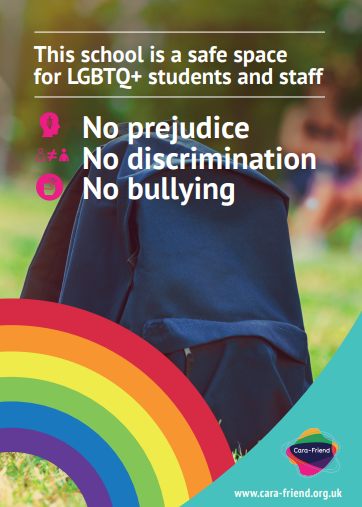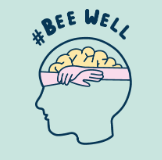Student support
| Young carers | Anti-bullying | LBGTQ+ | Bee Well Project |
Henry Cort understands how complex young people’s lives can be, and we do our best to support them through the hard times and the good.
This begins during Tutor Time, where all students complete a daily well-being check. The College uses the Zones of Regulation approach here by providing a simple non-verbal emotional scale to measure how they are feeling.
So what ZONE are you in?
Zones of Regulation
| Blue | Green | Yellow | Red |
|
|
 |
|
|
|
Bored |
Calm Content Focussed Happy Ready to Learn |
Anxious Confused Excited Frustrated Worried |
Angry Aggressive Terrified I need time and space |
We try to use the principles of Zones of Regulation whenever interacting with students and encourage parents/carers to use the same system at home to provide a consistent approach.
There are also four different Student Support Areas in the College which are tailored to support the differing needs of our students:
- Student Support 1 - Behaviour
- Student Support 2 - Wellbeing
- Student Support 3 - Attendance and intervention rooms
- Student Support 4 - Study support
In these areas, students are also offered a range of interventions to support social and emotional needs and positive well-being. Some of the interventions include:
- Forest School
- A Toolkit Programme (helping students to create their own social and emotional toolkit)
- ELSA (a 6-week programme of emotional literacy support)
- MOP (Moving on Project – a therapeutic counselling service)
- Motiv8 – a group mentoring programme
- Psycho-therapy (professional counselling)
- Anger Management (a 6-week programme to help students manage angry feelings and defuse them)
- Zones of Regulation (a 4-week programme to explore how to cope with emotional regulation)
- School Nursing Team (offering a range of services including Hygiene Health, Sexual Health, Good Sleep and Diet Health, Mental Health support and some elements of physical health too)
The College also encourages students to take care of their own mental health and well-being by following some ‘golden rules' around lifestyle, including; Sleep, Exercise, Diet and Screen-Time
- https://www.youngminds.org.uk/young-person/my-feelings/sleep-problems

- https://teensleephub.org.uk/

- https://www.nhs.uk/live-well/eat-well/how-to-eat-a-balanced-diet/eight-tips-for-healthy-eating/

- https://www.nutrition.org.uk/nutrition-for/teenagers/

Back to top
A young carer is a young person aged 18 years old or under, who cares for a parent or sibling with a physical disability, mental health issue, learning difficulty or substance misuse.
|
A young carer might have these responsibilities:
|
Impacts on a young carer:
|
Mrs Hills will be running a drop-in session on the first Friday of each month at lunchtime in H18. Signposting and further Information: https://www.nhs.uk/conditions/social-care-and-support-guide/support-and-benefits-for-carers/being-a-young-carer-your-rights/
Back to top
Anti-bullying
“There is no legal definition of bullying. But it is usually defined as repeated behaviour which is intended to hurt someone either emotionally or physically, and is often aimed at certain people because of their race, religion, gender or sexual orientation or any other aspect such as appearance or disability.” - Bullying UK
Online bullying advice
- Screenshot any offensive or harassing messages.
- Check your privacy settings and don't accept followers you don't know.
- Check your location settings and turn them off.
- If you are being bullied online, stop communication with the other person and screenshot it.
- Block the other person.
- Report the bullying or harassment to the provider.
- Confide in someone you can trust, so they can help you to get the bullying to stop.
If a student feels they are a victim of bullying, we encourage them to seek support from a member of staff.
LBGTQ+ support
Young people have a lot to think about growing up. Exploring their sexual orientation or gender identity should be a positive experience for all young people, including lesbian, gay, bisexual and trans young people. Staff members who work with young people play a crucial role in helping young people make sense of these new experiences and creating an environment where young people feel able to be themselves completely.
What does each letter mean?
- L (Lesbian): A lesbian is a woman/woman-aligned person who is attracted to only people of the same/similar gender.
- G (Gay): Gay is usually a term used to refer to men/men-aligned individuals who are only attracted to people of the same/similar gender.
- B (Bisexual): Bisexual indicates an attraction to all genders.
- T (Transgender): Transgender is a term that indicates that a person's gender identity is different from the gender associated with the sex they were assigned at birth.
- Q (Queer or Questioning): Though queer may be used by people as a specific identity, it is often considered an umbrella term for anyone who is non-cisgender or heterosexual. Questioning refers to people who may be unsure of their sexual orientation and/or gender identity.
- + (Plus): The 'plus' is used to signify all the gender identities and sexual orientations that are not specifically covered by the other five initials. An example is Two-Spirit, a pan-Indigenous American identity.
https://thebeyouproject.co.uk/ ![]()
https://www.barnardos.org.uk/get-support/services/positive-identities-gender-space ![]()
https://www.theproudtrust.org/young-people/ ![]()
Bee Well Project
The College is also part of the Bee Well Project which includes a large group of other Hampshire Schools.

The College began the Bee Well Project in 2023. It collects data anonymously from students and uses this to highlight key patterns and trends in each school and compares this to other schools in Hampshire.
The results from the first survey showed that female students rated ‘knowing where to go for support and how to get support in school' 10% higher compared to students in all other schools. For all students, this was 7% higher.
The school is now in its second year of this project and there will be more data available soon about what our students think and feel. This shows our continued commitment in trying to understand and support the well-being of our students.
We also encourage students to access support outside of school if needed and the fo are sign-posted to the following websites/apps in assemblies:
- https://www.kooth.com/

- https://www.nhs.uk/mental-health/children-and-young-adults/mental-health-support/

- https://www.samaritans.org/how-we-can-help/contact-samaritan/

- https://beewellprogramme.org/




